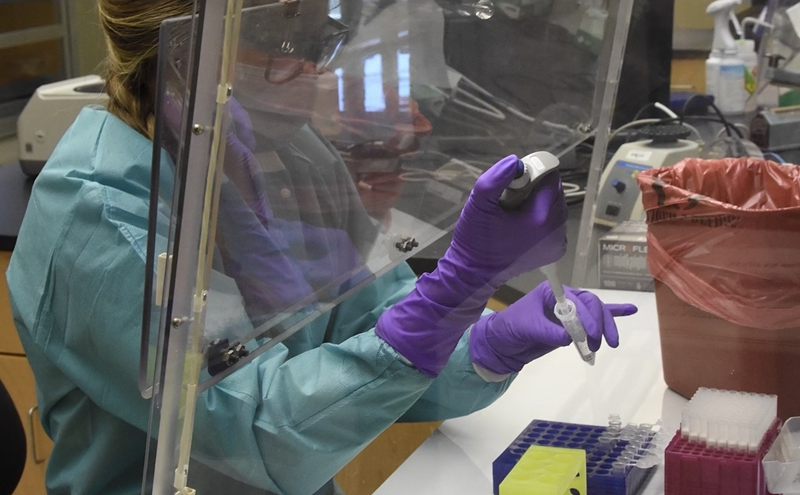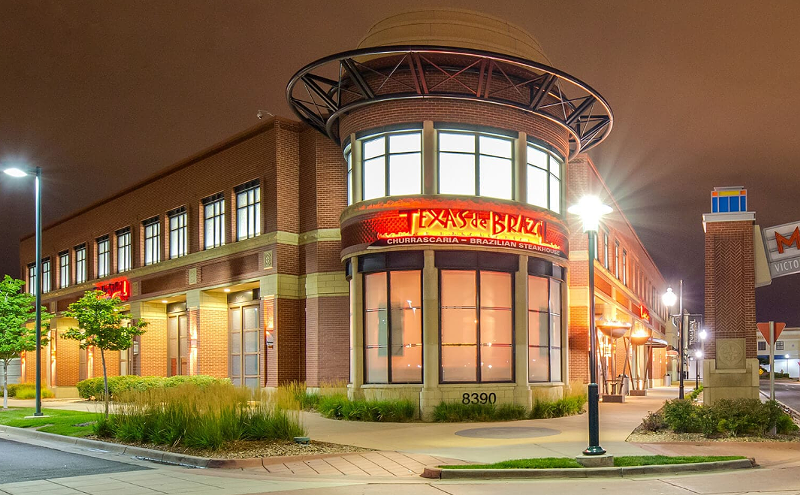Brian De Palma had a good reason for remaking the erotic French thriller Love Crime: He could do it better.
"I think it's very dangerous to remake a classic," says De Palma. "Leave it alone." But the 2010 corporate-catfight flick about two female frenemies had a framework he loved — drama, sex, backstabbing, secrets — plus enough wet filler that he could sub out for his trademark De Palma sizzle. "You go through all these laborious flashbacks," he groans. "I just got rid of all of that."
His redo, Passion, has saxophones and slanted shadows and an almost oppressive color palette, plus actresses Rachel McAdams and Noomi Rapace as advertising executives Christine and Isabelle. Christine is the bitchy blond Barbie who has it all: the corner office, the expensive shoes, the hot boyfriend, and a million excuses to flaunt her superiority over her mousy brunette underling. If the film starred Bradley Cooper and Steve Carell, it'd be a comedy. But when women get competitive, films get nasty — think Single White Female, Obsession, The Roommate, The Hand That Rocks the Cradle.
"Men get very like two rams banging their horns together; women are wilier," explains De Palma. "They do things like, 'What did you do to your hair?' My first wife, her mother would look at her daughter and go, 'Did you cut your hair?' My wife would go, 'Oh, God — what did I do wrong?'"
Likewise, instead of direct confrontation, McAdams tries to kill Rapace with kindness, gifting her an expensive scarf that she loops around her neck like a noose, and later buying her phenomenally pricey ankle-breaking stilettos that seem designed solely to prevent Rapace from running away. In a clip that will have art-house bros high-fiving each other once the GIF goes live, McAdams even pulls Rapace to her for a soft, deep lip lock.
"That mafia kiss of death!" laughs De Palma. "It's playful and it's insidious."
Naturally, Rapace wields her own sly weapons. She doesn't just want to stand up to McAdams; she wants her job. Before one picks up an actual knife — what, you were expecting a deathless De Palma flick? — they cut each other with nice words like thank you, you're welcome, and I'm sorry. "Women can play a subservient role very easily — and know how to maneuver through subservience," says De Palma. "I don't think you'd see a man do that. That's putting his ego on the line."
McAdams and Rapace trusted each other enough to feel safe getting cruel. They'd been friendly since they both tried to siphon screen time from Robert Downey Jr. in 2011's Sherlock Holmes: A Game of Shadows, and, as actresses who've seen their share of girl-on-girl rivalry, were delighted to help De Palma ratchet up the stakes. In one scene, McAdams was supposed to accuse Rapace's lesbian assistant (Karoline Herfurth) of grabbing her ass. When the camera rolled, McAdams subbed in a stronger word.
"Suddenly, Rachel says, 'Cunt!' I went, 'Yikes!'"
He kept it in.
Of course, De Palma himself has come under attack from women, mainly because his films enjoy serving them up as sex objects waiting to be stabbed. But a De Palma heroine gives as good as she gets. You wouldn't want to rile The Fury's Gillian or Femme Fatale's Laure — and you definitely don't want to upset Carrie. You can't even blame the extreme violence in Carrie on Stephen King. In the original, Carrie's cruel mother dies of an induced heart attack. "When I read that, I said, 'Oh, that's exciting. What, she's going to fall down?'" yawns De Palma. "That's when I got the crucifixion idea."
At 72, De Palma still projects himself as the enfant terrible of Hollywood, the man who'd rather follow his gut and his crotch than chase studio dollars. Even when singled out by Tom Cruise to kickstart the Mission: Impossible franchise — a hit that made as much money as the director's next three biggest successes combined — De Palma infamously refused to return for the sequel.
"When they asked me to do another one, I said, 'Why would you do that?'" grumbles De Palma. "Making multiple movies like Jurassic Park 1, 2 — I think Steven's going to make Jurassic Park 5! — that never made any sense to me."
It's not that De Palma feels responsible for protecting Great Art. Without sarcasm or false modesty, he admits that directors do their best work before sixty. ("Even Hitchcock — he made eighty movies, and personally, I think his films started to deteriorate after The Birds.") He just wants to continue his career the same way he began it: as a pressure-free provocateur.
So it makes sense that Passion is a sexy, silly trifle. What will be harder is getting critics to underestimate his next film, Happy Valley, a Joe Paterno biopic starring eight-time Academy Award nominee Al Pacino. But De Palma, who has yet to receive a single Oscar nomination of his own, is committed to going ignored.
"I'm telling you, these award things where people stand up and tell you how great you are, I avoid them," he insists with a shrug. "Fortunately, I've never had to deal with it."








